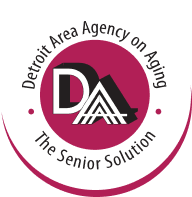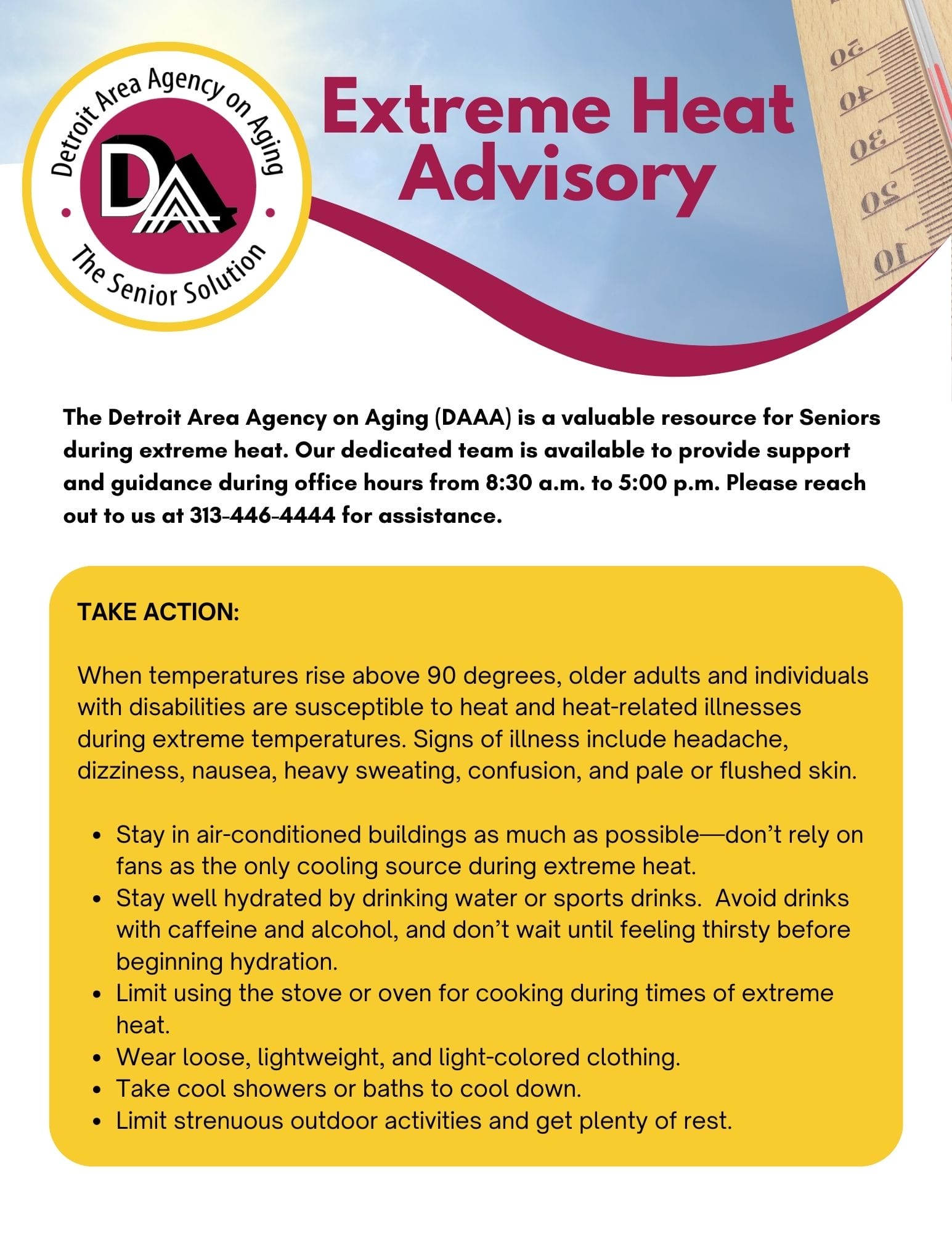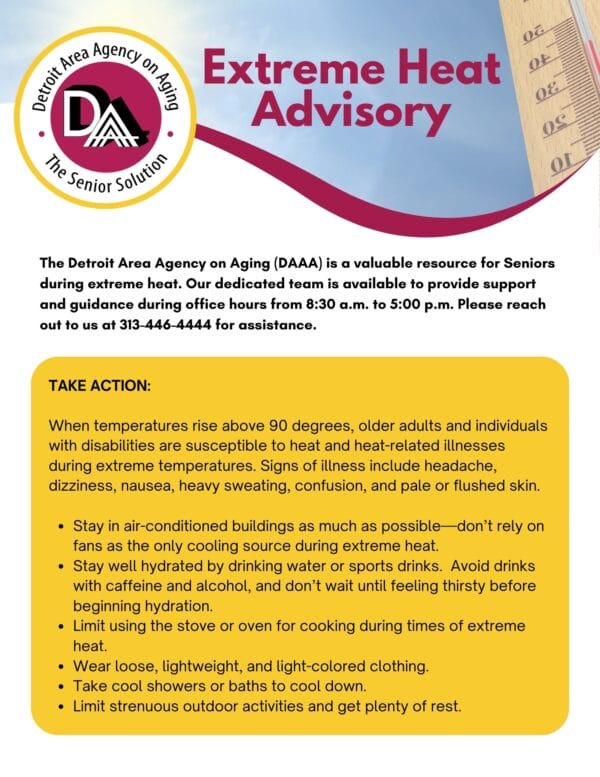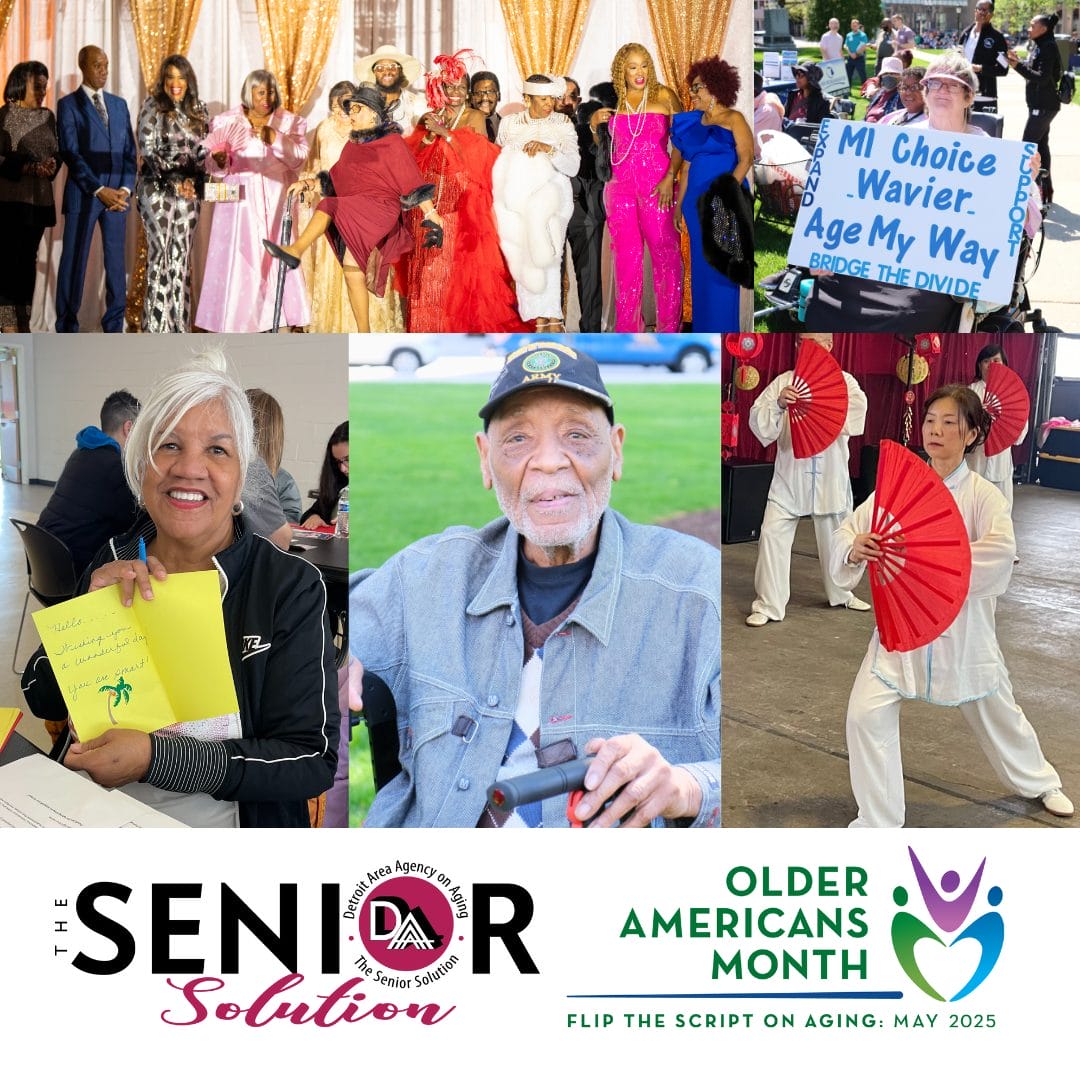The Detroit Area Agency on Aging (DAAA) is a valuable resource for Seniors during extreme heat. Please reach out to us at (313)446-4444 for assistance. Our dedicated team is ready to provide support and guidance to navigate extreme weather conditions.
Remember to prioritize your well-being by staying hydrated and cool during this challenging time. Your health and safety are our top priorities, and we are here to help you navigate this heatwave with caution and care.
Don’t forget to check in on your neighbors and older adults during this time.
If you or a loved one needs an emergency case of water or a box fan, please contact (313) 446-4444. Limited supply available.
City of Detroit Recreation Centers serving as cooling centers:
- Northwest Activities Center, 18100 Meyers (M-F, 8 a.m. – 9 p.m.; Saturday 10:00 a.m. – 6:00 p.m.)
- Patton Recreation Center, 2301 Woodmere (M-F, 8 a.m. – 8 p.m.; closed Saturdays)
- Heilmann Recreation Center, 19601 Crusade (M-F, 8 a.m. – 8 p.m.; closed Saturdays)
All other Detroit Recreation Centers will remain open during normal operating hours.
Visit the City of Detroit Cooling Centers Page for more information on cooling centers near you.

Detroit Public Library Locations
Serve As Cooling Centers
All currently open Detroit Public Library locations are available during normal operating hours for residents to stay cool. Check the website for details about hours of operation at individual locations at www.detroitpubliclibrary.org/locations
TAKE ACTION:
When temperatures rise above 90 degrees, older adults and individuals with disabilities are susceptible to heat and heat-related illnesses during extreme temperatures. Signs of illness include headache, dizziness, nausea, heavy sweating, confusion, and pale or flushed skin.
The CDC recommends the below tips to help prevent heat-related illnesses in the elderly:
- Stay in air-conditioned buildings as much as possible—don’t rely on fans as the only cooling source during extreme heat.
- Stay well hydrated by drinking water or sports drinks. Avoid drinks with caffeine and alcohol, and don’t wait until feeling thirsty before beginning hydration.
- Limit using the stove or oven for cooking during times of extreme heat.
- Wear loose, lightweight, and light-colored clothing.
- Take cool showers or baths to cool down.
- Limit strenuous outdoor activities and get plenty of rest.
According to the CDC, Symptoms of heat-related complications and illnesses include:
- High body temperature (103°F or higher)
- Hot, red, dry, or damp skin
- Fast, strong pulse
- Headache
- Dizziness
- Nausea
- Confusion
- Losing consciousness (passing out)
Some factors that might increase your risk of developing a heat-related illness include: Obesity, existing fever, heart disease, mental illness, poor circulation, sunburn, diuretics, sedatives, tranquilizers, and other prescription drugs.
What to do:
- Call 911 immediately—heat stroke requires urgent medical attention.
- Move the person to a cooler location.
- Lower the person’s body temperature with cool cloths or a cool bath.
- Ask 911 before offering the person fluids to drink – when someone is experiencing a heat stroke, their body’s ability to regulate temperature is severely compromised. Offering fluids to drink can potentially worsen the situation by causing them to choke or aspirate due to altered mental status or impaired swallowing reflexes. In addition, there is a risk that drinking fluids could lead to electrolyte imbalances or further exacerbate the heat stroke. Therefore, it’s important to focus on cooling the person down and seek immediate medical assistance rather than giving them fluids orally.
Stay cool and help check in on our older adults.
Please note that some medications can cause increased side effects in extreme heat. If you have any questions or concerns, it’s best to check with your doctor or pharmacist.





